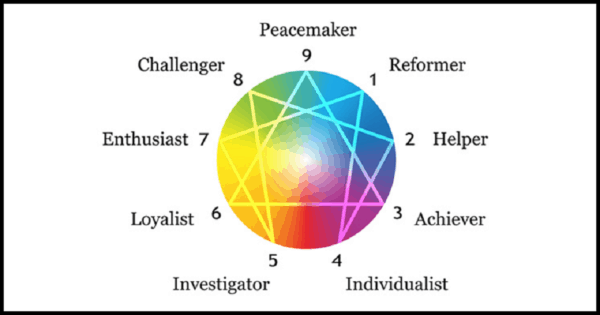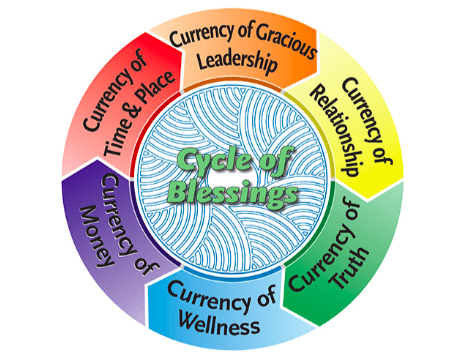Overview of Enneagram 7 (from https://www.enneagraminstitute.com/type-7/):
Sevens are extroverted, optimistic, versatile, and spontaneous. Playful, high-spirited, and practical, they can also misapply their many talents, becoming over-extended, scattered, and undisciplined. They constantly seek new and exciting experiences, but can become distracted and exhausted by staying on the go. They typically have problems with impatience and impulsiveness. At their Best: they focus their talents on worthwhile goals, becoming appreciative, joyous, and satisfied.
Basic Fear: Of being deprived and in pain
Basic Desire: To be satisfied and content—to have their needs fulfilled
Key Motivations: Want to maintain their freedom and happiness, to avoid missing out on worthwhile experiences, to keep themselves excited and occupied, to avoid and discharge pain.
Scripture for Sunday: 1 Kings 8:22-26
Then Solomon stood before the altar of the Lord in the presence of all the assembly of Israel, and spread out his hands to heaven. 23 He said, “O Lord, God of Israel, there is no God like you in heaven above or on earth beneath, keeping covenant and steadfast love for your servants who walk before you with all their heart, 24 the covenant that you kept for your servant my father David as you declared to him; you promised with your mouth and have this day fulfilled with your hand. 25 Therefore, O Lord, God of Israel, keep for your servant my father David that which you promised him, saying, ‘There shall never fail you a successor before me to sit on the throne of Israel, if only your children look to their way, to walk before me as you have walked before me.’ 26 Therefore, O God of Israel, let your word be confirmed, which you promised to your servant my father David.
Notes on the Text:
The books of First and Second Kings constitute the history of the kingdoms of ancient Israel in the Old Testament. They trace the ups and downs of kingship all the way from the death of David (962 BCE) to the destruction of Jerusalem (587 BCE), with a brief addendum linked to the death of the Babylonian king Nebuchadnezzar in 562 BCE. Yet, these books were not intended to be “history” in the way we understand that term today. They were reflections of faith on the historical events of the life of the people of ancient Israel during the rule of kings.
Despite all of God’s laws, prophets, rituals, worship and teachings about freedom, compassion, and justice, the kings of Israel fell into the same old traps of power, domination, and accumulation. Even though their core story was about liberation from slavery in Egypt and learning to follow God’s ways in their economic, social and spiritual systems, the leaders of ancient Israel often faltered. They saw the power and accumulation of the kings of the other nations and wanted to be like them. And the only way to accomplish that was through the exploitation of the people. King Solomon, the son of David, was the epitome of such exploitation and accumulation. On the surface one could think that Solomon was a great and successful king. After all, he was the one who built the temple in Jerusalem. He was the one who prayed for wisdom as God’s gift for him. Our text for this week is part of his prayer at the dedication of the temple. This was a big project that took a lot of vision, time and energy. It also inspired so many generations after.
But as a Seven, Solomon was not able find satisfaction in what he had. He lived a life of seeking after the illusions of more power, social status, pleasure and wealth. He had it all but was never satisfied and was always in pursuit of more. Solomon’s rise to power was surrounded by deception, manipulation, and violence. His mother, Bathsheba, and the prophet Nathan manipulated David to get him to name Solomon as his successor and not David’s other son Adonijah, whom Solomon later ordered to be killed to eliminate him as a threat to his throne. Solomon’s anxiety about his throne and power was also manifested in his insatiable appetite for accumulation. He accumulated food, women, religious practices, armor/chariots, and wealth. He did all of this through high taxes and cheap labor.
The result of all of this was that the people under his rule got fed up, so that by the time his son Rehoboam got into power, the people organized a revolt which ended up splitting the kingdom in two: North and South. Solomon’s anxiety about his power and his need to accumulate were the undoing of Israel as a united country. The truth of God which was the law of justice and sharing trumped the power and violence of Solomon and his son. In his book, Truth Speaks to Power, Walter Brueggemann notes that “No one could have imagined such an outcome for Solomon’s regime, especially given the achievement of the temple…But the truth sneaks in to such awesome claims for God-backed power.” Everyone thought Solomon was the ultimate success story, but Solomon’s lust for power and possessions brought him and his whole country down. Sevens need to be redeemed to stop their impulsive drive for more.
For Reflection:
Here are three lessons to learn from the example of Solomon:
- The Illusion of More: We live in a culture that often pushes us to accumulate more. The minute we finish one holiday or season, retailers try to push on us the products of the next holiday or season. Keeping up with the best gadgets, entertainment, and travel are things we are made to believe as necessities for our happiness. But the truth is that there will never be enough of whatever we are seeking to fill that emotional hole in us to help us truly overcome pain.
- Avoiding Pain at All Costs: To be alive is to experience pain. Pain and joy are linked because if we stop our ability to feel pain, we lose our ability to truly feel joy. Our work is to learn how to feel our pain with the resources of our souls: Soul friends, faith, and the companionship of Christ. Through the depth of our spirits, we can go through the challenges of life and emerge stronger and even more resilient.
- The Future: Always looking at what is yet to come deprives us of seeing what is already within and around us. Living in the present moment is tough when all you can think of is the next adventure and experience. But each ordinary moment has potential for great joy if we are fully alive. Washing your hands, spending time with a loved one, eating a good meal, reading a good book, getting a task done, or going for a walk all have the potential for greatness when our hearts are open.
Practices like mindfulness, deep breathing, prayer, gratitude, and moderation are essential tools for us to live a life of joy.
Prayer for Simplicity by Edward Hays:
Lord of True Liberty,
You who commissioned Moses
to lead Your chosen children from bondage in Egypt
to the freedom of a new land,
help me to find a real freedom in simplicity.
Cure me, Lord, of “buyer’s itch”;
heal me of the consumer’s consumption
that keeps me constantly discontent
and continuously craving more and more.
Show to me the joys of a simple lifestyle
whereby in my “freedom from things”
I shall have more time and energy
to invest in my relationships with those I love,
with myself, and with You, my God.
Help me, by the example of Your Son, Jesus,
to place my value in those things
that neither moth nor thief can take from me.
And, as I strive for greater simplicity—
in my prayers, my lifestyle, my desires—
I shall find greater happiness in life itself.
May my efforts at simplicity not cease
and looking into my closet and counting clothes,
but may they take on their greatest energy and zeal
when looking into my heart
and removing all that is not in the fashion
of Your divine heart,
all that blocks my loving others.
May I be reminded frequently that whatever form
my attempts at simplicity may take
that it is a simple heart
which You first and foremost desire. Amen.




